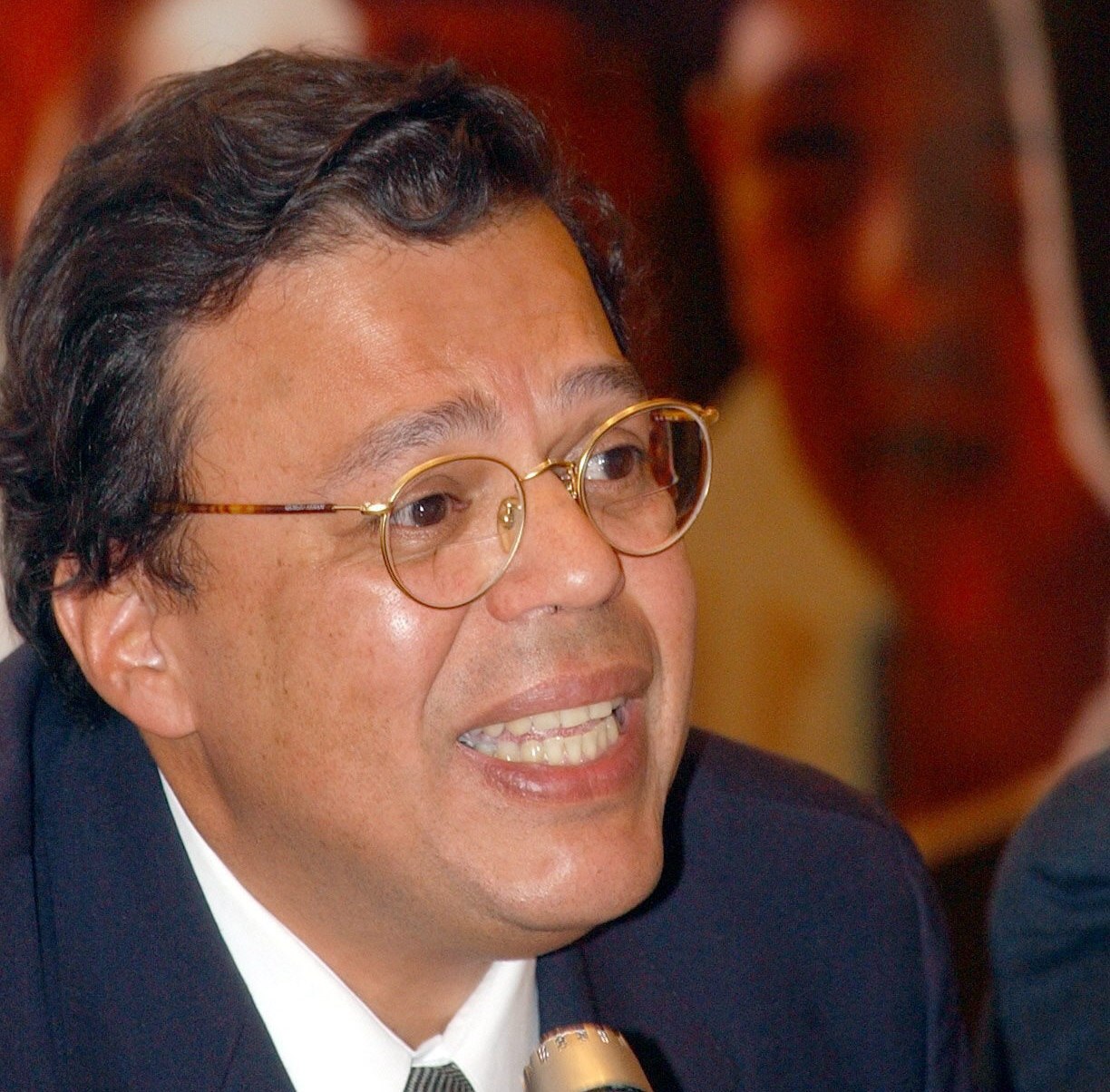The Salvadoran diplomat, Francisco Galindo Vélez, named this Saturday as the "coordinator of the international verification mechanism", is the person chosen by the Spanish Socialists (PSOE) and Together for Catalonia (Junts) to act as coordinator of the verifiers in the bilateral meetings between the two parties. The PSOE, senior partner in the Spanish coalition government, and Junts, Catalan pro-independence party, met this Saturday in Switzerland in the first meeting between the parties, as agreed as part of the accord under which Junts supported the creation of a new government under Socialist leader Pedro Sánchez, a meeting in which Galindo Vélez also took part. The diplomat, born in San Salvador in 1955, is a legal expert in the protection of uprooted peoples and human rights with extensive experience in the Colombian conflict. He is an ambassador within El Salvador's diplomatic and consular representation in Colombia, based in Bogotá, and was the country's ambassador in Paris between 2010 and 2015. Later, he served as head of the El Salvador embassy in Colombia, between 2016 and 2020.
Galindo Vélez graduated in Legal and Political Sciences, has been a representative of the United Nations High Commissioner for Refugees (UNHCR) in France, Colombia, Mexico and Egypt, and a associate regional representative for Mexico, Guatemala, El Salvador, Honduras, Nicaragua, Costa Rica, Panama, Cuba and Belize between 1987 and 2008. In addition, he completed postgraduate studies at the University of New York, the University of Geneva and the Institute of Advanced International Studies, also in Geneva.
Experience with the FARC
Francisco Galindo Vélez has an extensive resume in international relations. In 2002, he assumed the position of UNHCR representative for Colombia, a country he arrived in with the UN organization in 1997, replacing the Brazilian Leila Lima. His main task in this territory was to "continue the task of strengthening the protection and prevention of displacement [of peoples] in Colombia". Galindo observed this year that "the solution to the conflict would bring us a solution to the displacement", but he clarified that he could not make predictions about this confrontation.
The Salvadoran diplomat was a direct witness during his stay in Colombia of the process under which an understanding was reached between the Colombian state and the FARC (Revolutionary Armed Forces of Colombia), which in 2016 resulted in the signing of a peace agreement, which put an end to more than 50 years of armed conflict between the guerrilla organization and the state. Galindo affirmed that both in his country and abroad the "feat" of the former president of Colombia, Juan Manuel Santos, to achieve the peace process with the FARC was seen with "great respect and solidarity". Santos replied: "None of this would have been possible without the contribution of you and the countries and organizations you represent. Colombia stands today, with the help of its international partners, as a reference country in many ways, fortunately all of them positive." The diplomat played a key role in the negotiations, exercising, on behalf of the government of El Salvador, the mission of monitoring and verifying, for the United Nations, the compliance with the 2012 Havana agreements between the government and the insurgency organization.
Civil War in El Salvador
The coordinator of the verifiers appointed by Junts and the PSOE also defends the peace process that took place in El Salvador between the government and the Farabundo Martí National Liberation Front (FMLN). In 2011, while he was his country's ambassador to France, he celebrated the 20th anniversary of the end of the civil war (1979-1992). As he related, France, along with Mexico, were at the origin of the creation of the so-called "Franco-Mexican declaration" of August 1981, which was the first of an international nature to recognize the FMLN as a political interlocutor . The "Franco-Mexican Declaration" assured that the Salvadoran conflict had no military solution and urged political dialogue between both sides. It took 11 years for the government and the FMLN to sign the agreements that ended the war and laid the foundations for peace at Chapultepec in Mexico.
Seven hour meeting in Geneva
The new dialogue process in which Galindo is now participating begins as part of the compliance with the accords reached between the PSOE and Junts for the investiture of the Spanish prime minister, Pedro Sánchez. Galindo participated in the meeting held in Geneva this Saturday, "in which the two parties thanked him for his commitment to put his experience at the service of the parties and his willingness to contribute to achieving a political and negotiated solution to the conflict", noted PSOE and JxCat in a joint statement.
The meeting lasted seven hours - with lunch included - and was chaired by the former Spanish prime minister and ex-PSOE leader, José Luis Rodríguez Zapatero, on behalf of the PSOE and the exiled Catalan president, Carles Puigdemont, on behalf of Junts. The press note provided by PSOE and Junts does not detail who participated in the meeting representing each of the parties, but the Junts leader in the Spanish Congress, Míriam Nogueras, was seen arriving at Geneva airport on Friday and it is known that, as well as her and Puigdemont, the party's general secretary Jordi Turull took part, while for the PSOE, as well as Rodríguez Zapatero, the party's organizing secretary, Santos Cerdán, and his associate, Juan Francisco Serrano, participated.
Apart from addressing the figure of the coordinator of the international mechanism, the meeting served to analyze issues of work methodology, including the agenda of the talks, and to review the most urgent issues and pending issues of the agreements already closed. As for future meetings, Santos Cerdán affirmed to press on Friday that the next meeting will take place after the Christmas holidays.

